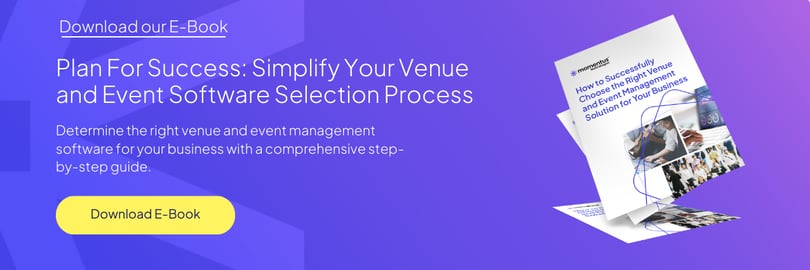What is a Smart (Event) Venue?
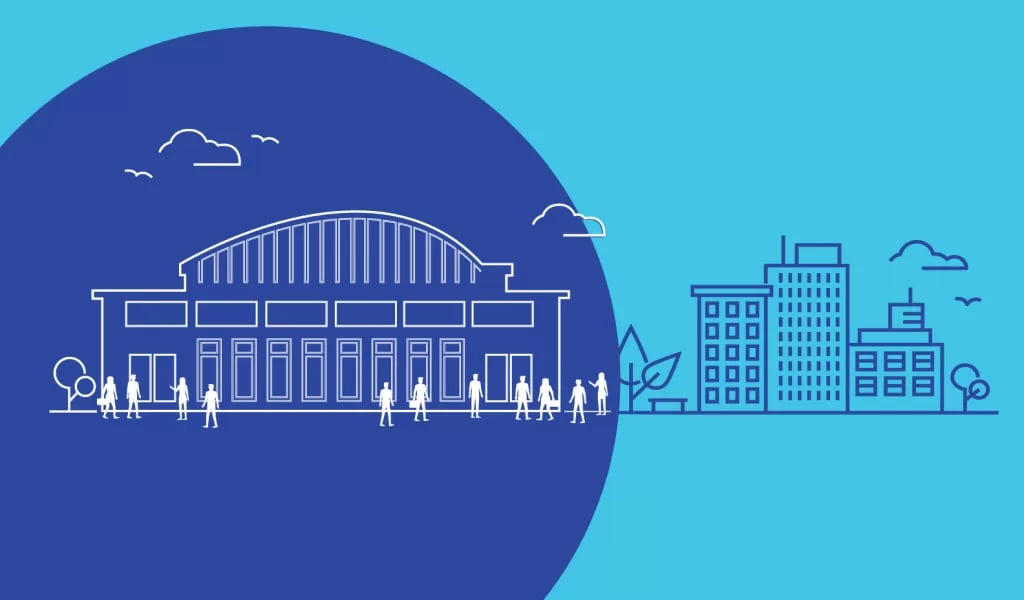
In this blog, I talk about our views on what makes a venue a smart (event) venue.
Many of us are familiar with the concept of a smart building. It is any structure that uses sensors and other technologies to automate a building’s functions and operations. The sensors can turn lights and escalators on and off, adjust heating and cooling, manage security systems, signage and other infrastructure based on the building’s utilization. These types of automations and building technologies make a building and venue infrastructure smart and more efficient to operate. While venues take pride and make significant investments in making a building smart, it is only one of the ingredients of what makes a venue a smart (event) venue.
So what is a smart (event) venue versus a smart building?
A smart venue is a venue that provides:
- A great financial outcome (returns and economic impact).
- A joy for planners, partners and employees to work with.
- Helps create memorable experiences for visitors.
So a smart event venue is about taking what a building offers and wrapping it with information technology, process and service to achieve the above outcomes.
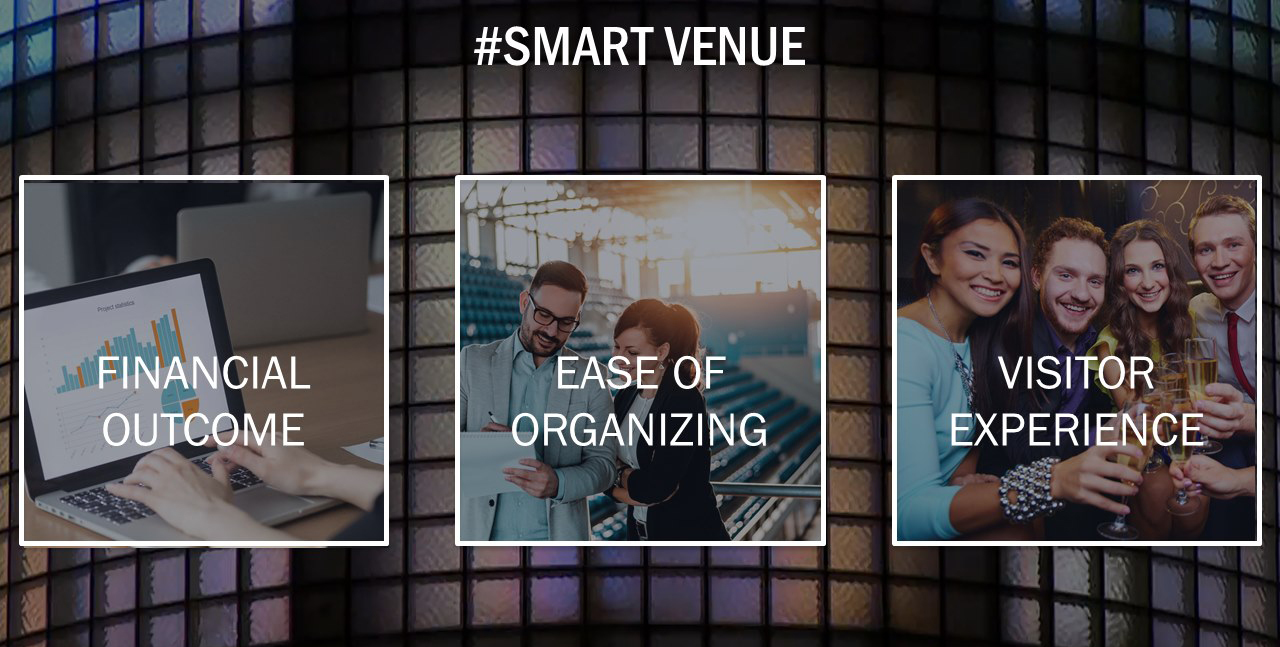
In today’s events business, the expectations of service and technology are high. In an events venue, everyone providing service must subscribe to the idea of making the venue a smart event venue. Smart venues thrive because they build a great following and they create an organizational culture that allow employees to grow professionally. The owners too must think in terms of smart venues and not smart buildings to drive the right outcome for them – financial outcome, reputation, utilization.
Here is our framework that walks through the elements that makes a smart venue.
Introducing Smart Venues
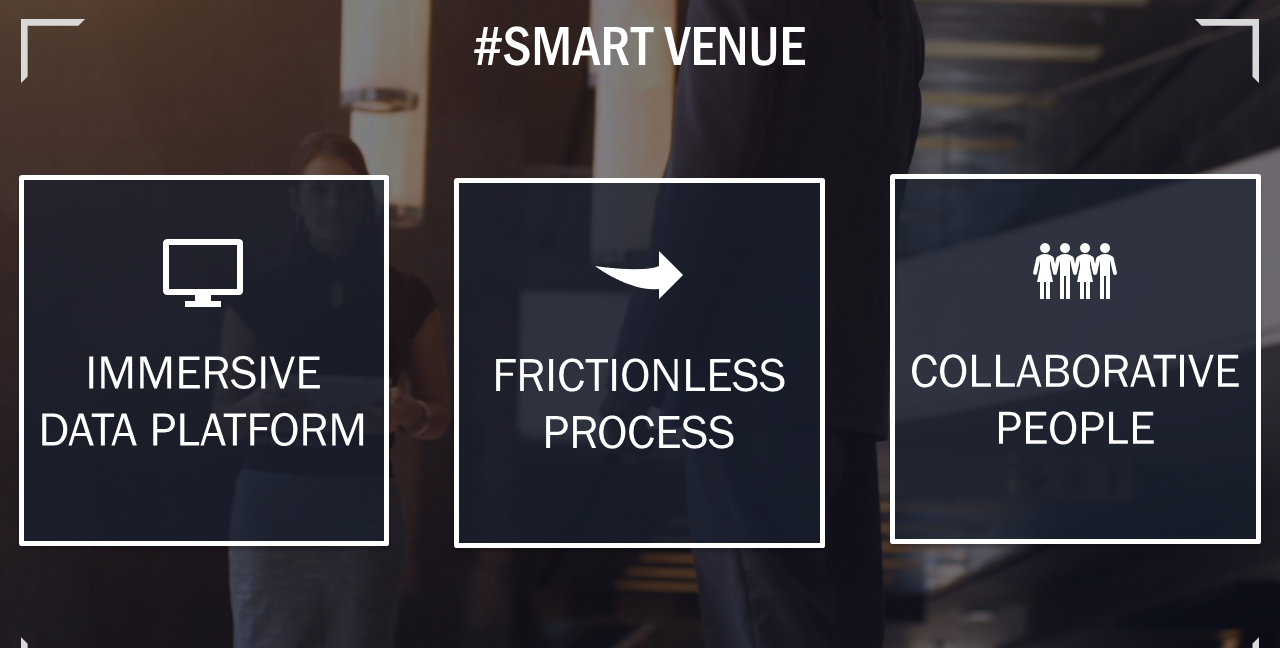
First, a smart venue needs an immersive data platform that touches every aspect of the business -all the way from parking, to registration, to functions, to seating, to food, to billing, and beyond. All the touchpoints and experiences need to be connected by an immersive and comprehensive technology platform that creates an information super highway.
Second, the processes at a smart venue need to be frictionless. The hundreds of items that make up the event should not feel like discrete steps with gates. Changes should be possible with information flow informing all the right parties about all the adjustments.
Third, teams working in smart venues/events need to be collaborative to elevate the experience. In the end, people deliver experiences.
Immersive Data Platform
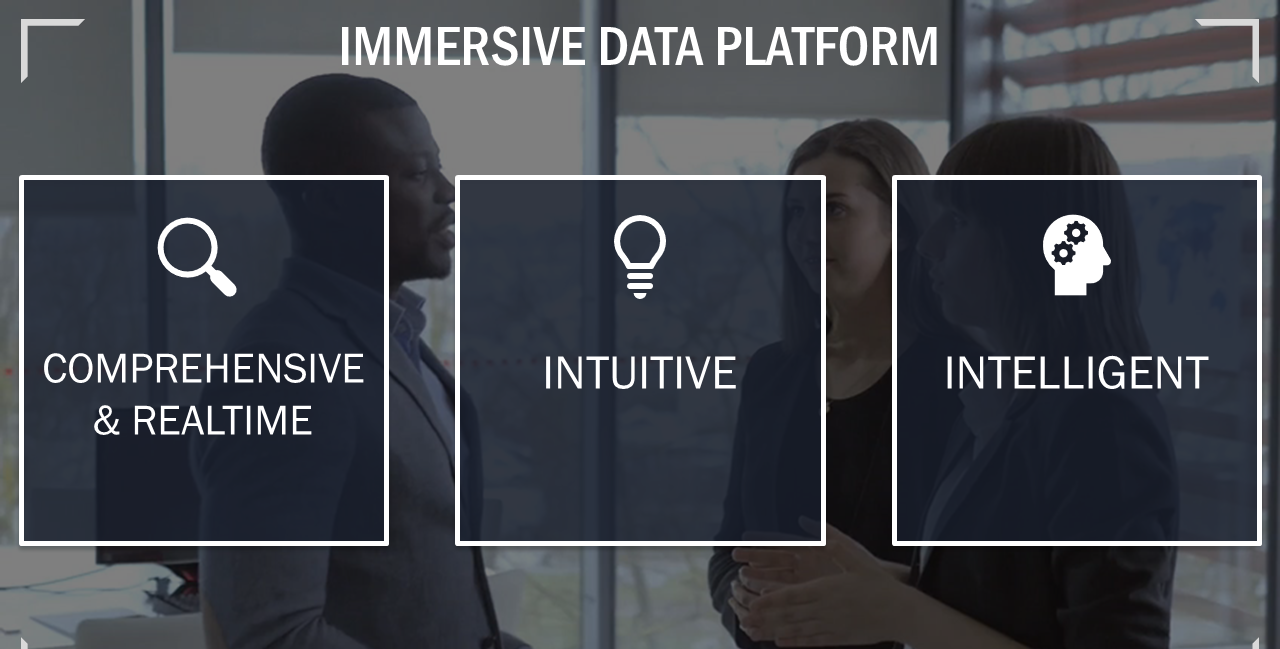
Comprehensive. Intuitive. Intelligent. These are the pillars of an immersive data platform needed to house information free from the boundaries of organizational silos or departmental lines. Not only is the data in the system easy for us to navigate through but it also helps make better decisions quickly. The data is all linked together, accurate and accessible.
Comprehensive means the system touches every part of your business. Events industry deals with many touchpoints and preferences that constantly evolve and change. Those include dates, times , attendee numbers, functions, food preferences, inventory, audio visuals, crowd management, labor, security, loading, setup, billings, payments etc.. If some of these elements such as inventory, live in an Excel spreadsheet or reside in another system, extra steps are required to access that information, keep it up-to-date, and put it to use. If this occurs, the information platform is neither comprehensive nor real-time. Without a comprehensive and real-time platform, a lot of money, time and resources need to be spent to consolidate and verify different data elements. This does not make a venue smart.
The information platforms must also be intuitive and be designed for the events business. Every user must be able to readily use the platform and enjoy using it. If it is difficult to use or access, data will remain locked inside the system. In today's day and age the technology tools are expected to be visual. The ability to easily share information with others—colleagues, customers, partners, attendees is crucial. We need the data flow to be natural and easy.
Finally, we need our information platform to be intelligent. The software should guide the user to make correct, informed decisions and prevent users from making bad decisions. Say, for instance someone wants to change the catering order. In a smart venue, this should be possible with minimal effort. The system should guide this change considering the staffing and inventory. Or if an exhibitor wants additional services, the systems offers choices on what is possible at that time.
Frictionless Process
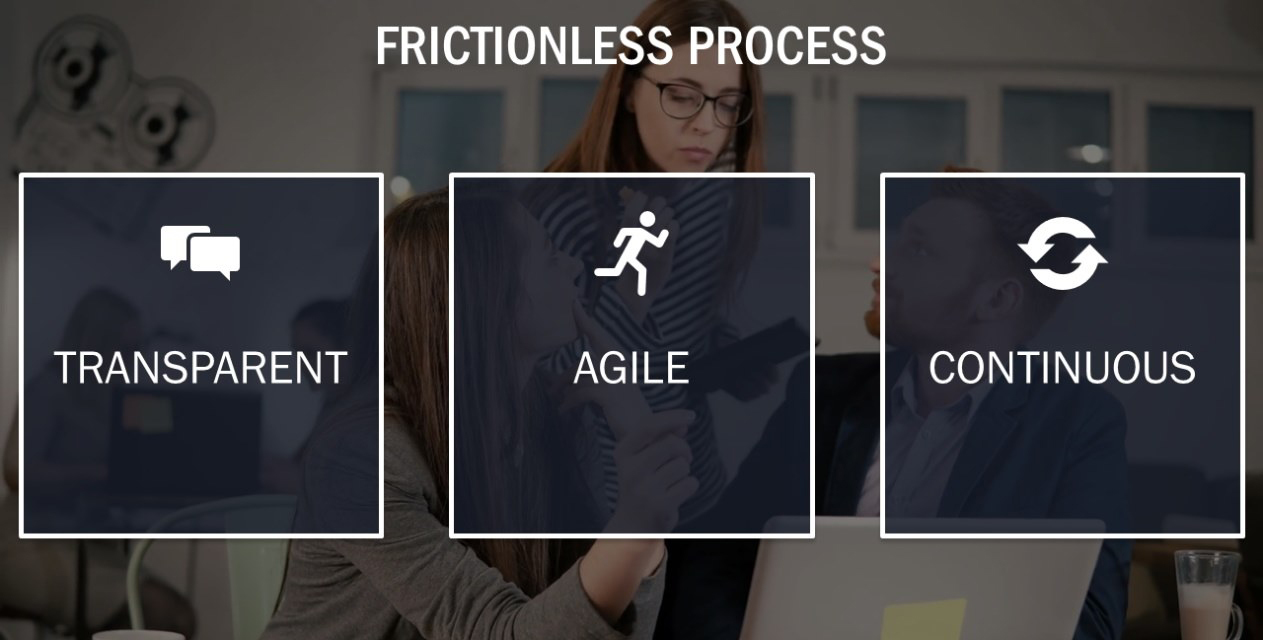
The second big component in a smart venue has to do with process. Processes need to be frictionless. Frictionless is the experience when you don’t feel that there are many small discrete steps stitched together. Delivering a frictionless process starts to unlock the value of an immersive information platform. To become frictionless requires transparency of information, agility to shift course, and a continuous flow.
For a frictionless processes, transparency of information and resources is essential. Allowing customers and partners to engage in planning and execution eliminates obstacles and encourages collaboration. Sharing pricing, inventory and resources with your partners, planners and customers allows planners and customers to help optimize the resources and experiences. This transparency should continue throughout the execution of the event openly sharing the statuses of all steps along the way allowing everyone the chance to help with any exceptions that may occur.
In today's day and age being agile and iterative is way of life. Iteration to improve on previous idea is expected and no one wants to be locked down from making changes weeks and months in advance. Traditionally, the event planning and venue management have not been iterative or nimble. We still tend to want to know everything up front and plan. Instead combining transparency with agility, you create a completely different experience. All change requests don’t have to start with, “Oh, you are too late” or “Oh, you should have decided this sooner.” With an agile and nimble approach, everything is out on the table and everyone in the process is able to collaborate and iterate—resulting in a more dynamic planning and design experience.
Lastly, to be continuous means that everything simply flows. You don't feel like there is a sales process, then there is a planning process, then a different team and process for setup and delivery. Today, in many venues there are a lot of breakpoints and hand-offs and transitions increasing the possibility of errors and mistakes. Instead, in a smart venue with a continuous process, the system and the team proactively communicates along each step and milestone. The dialog goes more like “Remember those items we were you recently added, they are already ordered for you.” And “Yes, the room is already set up for you.” The continuous flow of notifications with visuals is really calming to everybody through the entire experience.
Collaborative People
Finally, a smart venue needs collaborative people. It's not just about people, though. There are many employees that are eager to provide great service. However, if they are not enabled, then they are just great people with a great smile, but they can't solve for exceptions. For them to be effective, they need to be 1) informed and 2) empowered.
Why do I say informed? We need people throughout our organizations to have information at their fingertips all the time. This approach is completely different than the “need-to-know” mindset. Gone are the days of limited information access and paper based need to know reports and work orders. We need to give our teams much more information so they can they can manage not only the happy path but also take care of things when they go awry. By embracing this informed approach, we get enthusiastic employees who know what is going on and are armed with the right tools to take action.
Once we have made information accessible, we must empower people. Empowering goes beyond telling employees and contractors that if they see something that needs to be done to go ahead and do it. It also requires modeling, recognizing, and rewarding that right behavior as well as providing tools like ability to take payment or lookup inventory handy. That is when you will start to observe employees recognizing situations and taking action. “Oh, you need one more screen here? Great, I can get it to you.” “Are you willing to pay for it here? I can manage that for you right now.” It's done.
In a nutshell, we all should be striving for having an immersive data platform, frictionless processes, and collaborative people. If we do that, then we will take our smart buildings and turn them into smart event venues.. Ultimately, smart venues deliver financial outcomes, economic impact, ease of organizing, and amazing visitor experiences-all with same constraints, within the same buildings, within the same infrastructure.
With a smart venue, we can deliver extraordinary event outcomes.

